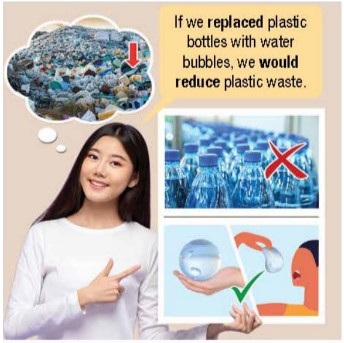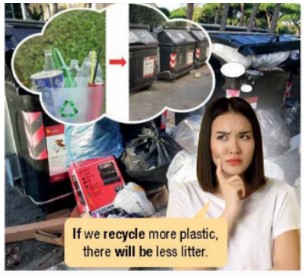a. Read the article and choose the best title. (Đọc bài viết và chọn tiêu đề tốt nhất.)
1. What would happen if we all stopped eating meat? (Điều gì sẽ xảy ra nếu tất cả chúng ta ngừng ăn thịt?)
2. Why are people eating less meat? (Tại sao mọi người ăn ít thịt?)
Saving the environment doesn't have to be expensive. You don't need to buy an electric car - just change your diet! Here are some of the biggest benefits of choosing a plant-based diet:
We would reduce greenhouse gases.
According to the Food and Agricultural Organization of the United Nations (FAO), farmed livestock produces 14.5% of the world's greenhouse gases. If we all ate plant-based diets, we would reduce food-related greenhouse gases by 70% by 2050.*
We would save water.
Farming takes up about 70% of all freshwater use and nearly one-third of that is for livestock.** Do you know how much water is used to produce just one kilogram of beef? Over 15,000 liters! Beans, on the other hand, need about 4,000 liters per kilogram and vegetables need just over 300 liters on average. ***
We would save forests and wild animals.
In many parts of the world, forests are being cut down to make land for farming. Deforestation leads to many problems, but the most obvious one is that wild animals lose their homes. According to FAO, of all the land we use for farming, 77% is used for livestock, including the land we use to grow their food **. If we ate less meat and planted more food for humans, we would have more land for forests and wild animals.
Eating less meat is one of the best ways to reduce your impact on the planet. If you start eating more plant-based foods, you might even like vegetables more than meat!
* according to a study in the journal Proceedings of National Academy of Sciences (PNAS)
** according to Humane Society International
*** according to The Water Footprint Network







